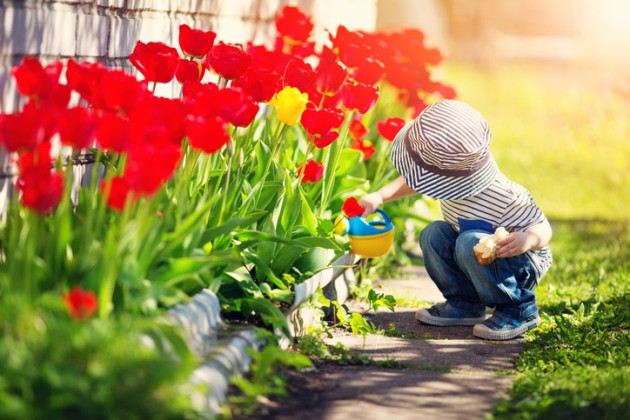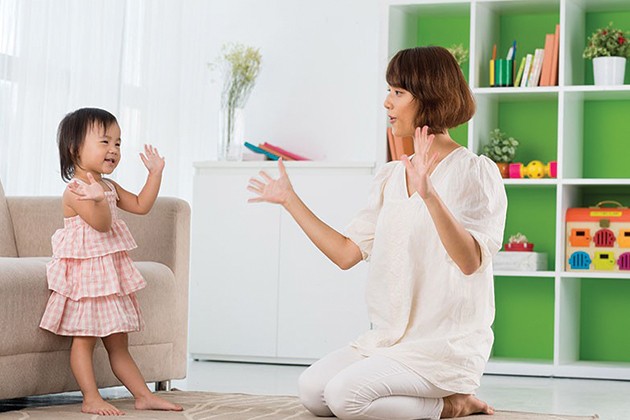Dear Highlights Podcast: How to Tackle Rude Conversations and Whining

For many parents, a child talking back or being rude is met with immediate anger or sternness—perhaps an instinctual response from their own upbringing or beliefs about respecting our elders. In this week’s Dear Highlights podcast, we tackle dealing with disrespect in terms of whining, back talk and how a rude exchange can become a teachable moment.
Mom and educator Dr. Chawanna B. Chambers, who goes by Dr. Chae, talks with our podcast host Christine French Cully on how to teach a child who is seemingly acting disrespectful to manage their responses. For Dr. Chae, her 6-year-old speaking rudely was an opportunity to teach a lesson about our brains and how we can head off a problematic interaction before it starts.
In this week’s Dear Highlights podcast, we tackle dealing with disrespect in terms of back talk and how a rude exchange can become a teachable moment.
Christine starts with sharing two letters Highlights received, with kids sharing how they don’t feel heard:
I’m 11 years old and I have a very big problem. Every time I say something or do something, I either get yelled at or get interrupted. My mother always tells me to let my feelings out, but when I do, I get yelled at. I try talking to them about it, but I get yelled at. What should I do?
My mom and I disagree on things. Then when I try to ask her questions, she won’t let me say what I want to say. She’s the only one who gets to talk.
Christine notes that, if we’re being honest, we’ve all been that parent—the one who exerts power and won’t let a child talk. Afterall, she says, we often parent how we were parented and that’s often how it worked in the past and still sometimes today in some households.
Dr. Chae, who practices positive parenting, shares the story of when her 6-year-old said something she considered rude and how she turned it into a teachable moment.
She shares that she and her daughter were leaving the UPS store one afternoon. While she was helping her daughter into her car seat, her daughter said something, and even though she doesn’t quite remember what it was, she remembers that it was “kind of rude.” She admits that her initial reaction was going to be to tell her daughter she can’t talk to her that way. But instead, she paused and asked her daughter, “Why are you being mean? Why are you being unkind? What happened?”
She says her daughter got quiet and then said, “I don’t know,” and started crying. Dr. Chae hugged her daughter and let her know it’s OK to not know how you feel. She made a point of telling her daughter that she wasn’t in trouble. It was more important to her to find out why her daughter said what she said, rather than shutting it down with punishment. She explained to her daughter that she wants to help her, but she can’t help if she doesn’t know what’s wrong or what she needs to do to make it better.
Her daughter shared, “Sometimes my brain tells me to be mean and I don’t know why.” Dr. Chae reassured her daughter that that’s normal, and sometimes we react without thinking. She told her daughter that we sometimes say things we don’t mean, and those things can hurt people we love. We can then feel bad because we said something that hurt someone we love. She let her daughter know that even adults do that, which surprised her daughter. She didn’t realize that adult can have emotions they don’t know how to deal with in the moment.
Dr. Chae let her daughter know she can always stop the situation and say, “Hey, I’m not feeling my best self. I need a minute.” She stressed that before you say the hurtful words, separate yourself from the situation. After practicing the calm-down phrase a few times, they hugged again and went shopping and felt better. When they got home, she shared with her dad what her mom told her.
From that experience, Dr. Chae shared, she was able to tell her daughter that her feelings were valid, but she set a limit: we’re not going to say things that are going to hurt people just because we don’t understand what’s going on with ourselves right now.
A core component of positive parenting and positive discipline, Dr Chae notes, is that parents should teach their children skills they will use in the future. Another component is when you talk to your child, they should still feel connected to you. If they feel like you’ve alienated them, they’re not going to be able to learn the lesson you really want to teach. She says that’s why in the moment, she hugged her daughter to have a connection and show empathy.
Christine says she loves how Dr. Chae started the conversation with a question. Sometimes we find ourselves talking at our children, rather than stopping and asking questions to open a conversation. She asks whether Dr. Chae was surprised by her daughter’s answer and whether she uses questions regularly to start a conversation with her children. Dr. Chae says she was surprised by her daughter’s answer because she assumed her daughter was upset because she wanted a toy and hadn’t gotten one.
When starting conversations, Dr. Chae says that she uses questions about 85% of the time. She says, “I learn more when I ask questions than when I assume.” Questions allow children to process their answers for themselves. She tries not to give her kids leading questions, but rather ones that require them to think about their answer before they respond. This helps them to
- Identify what they’re feeling
- Learn how to name that feeling
- Learn how to regulate their behavior and actions
Christine shares that although talking back and lashing out is normal for kids, most parents don’t want to overlook the behavior. She asks about ways parents can balance understanding with insistence upon respect.
Dr. Chae notes that kids are going to be cheeky or sassy because they’re human beings and are learning about boundaries and testing them. What parents can do is set limits, while also displaying empathy and expressing care. Going back to her experience with her daughter, Dr. Chae says another way she could have handled the situation is to say, “I understand you’re upset and I want to help, but you cannot yell at me.” With that you’re saying to your child it’s OK to express their feeling, but you set the limit of what’s not acceptable. Parents should always avoid adding “because I’m the adult” or “because I said so” because it’s not a logical reason.
She stresses parents need to learn to control their reactions. For example, you can’t tell a child they’re not going to get in trouble and then punish them because that breaks the trust. Keep your promises and be strategic with your words. The fact is, she says, kids will share things that will hurt your feelings, and that’s their truth. We can’t ask children to share and then get upset with what they share. Adults need let go of their egos, she notes. She also says that it’s OK to say you need a minute and walk away so you can calm down.
“Sometimes kids feel so powerless,” Christine says, “because they’re on this journey of becoming independent and sometimes that’s why they speak disrespectfully because they’re trying to gain back some sense of power.” She adds that giving kids a way to express themselves helps assure them they do have power. Dr. Chae agrees and explains that when a child acts out, it’s not about you. There’s something else going on.
Dr. Chae shares that she’s not perfect at parenting, and there are times when her emotions get in the way. Positive parenting isn’t about being a perfect parent, she notes, it’s about striving to give our children the space to be human beings, coaching our children to become who they are, and making sure our children feel trusted and safe.
Christine asks how parents can deal with the outside influences that might make positive parenting more difficult. Dr. Chae gives an example of her own experiences. She shares she’s a sarcastic person, and her teenage son has picked up on her sarcasm and learned it from her. She says when they’re learning how to use sarcasm but might not use it correctly, you can say, “This isn’t a situation that requires sarcasm.” When it comes to movies and TV shows, Christine notes there might be behaviors you don’t want your kids to emulate, and those can be used as moments to pause and reflect. Dr. Chae agrees and says these are definitely teachable moments, adding that might be easier to talk about these behaviors when it’s not your child who’s behaving that way.
Dr. Chae points out kids don’t often realize that certain tones or facial expression might come across as mean or rude, so it’s important to stop them in the moment and make them aware of what their body is doing, point out what you’re seeing them do, and ask them if they know what it means.
Christine asks the final question: Children are the most important people, and if we as a society really believe that, what would we do differently?
Dr. Chae answers that as a child rights advocate, she wants kids to be viewed as full, capable human beings because they are. She says there are three things adults could do differently:
- We should work on our own emotional availability and the triggers we have to let us get out of our ego. We need to lead without ego and without the need to dominate children.
- We need to stop viewing children as people to be controlled. We need to see them as human beings capable of thoughts and all the other emotions.
- We should value children’s voices and create many opportunities for them to grow and develop their voices. That’s how children learn and understand who they are by being afforded the opportunity to speak and share.
She says she’s stopped saying “give children a voice” a few years ago because they’re born with voice. “We have to listen to the voice. We have to amplify the voice. And respect the voice,” she explains.
She ends with explaining that adults should lead with empathy, rather than ego and power. Children need to see empathy to learn empathy. “Once children can see themselves as full human beings because we see them as full humans, the world is open to them and who they can become.”
Dear Highlights addresses the issues around being a kid today and offers parents expert advice to help raise their children to be their best selves. Tune in wherever you listen to your favorite podcasts! We launch a new episode every Tuesday morning.









